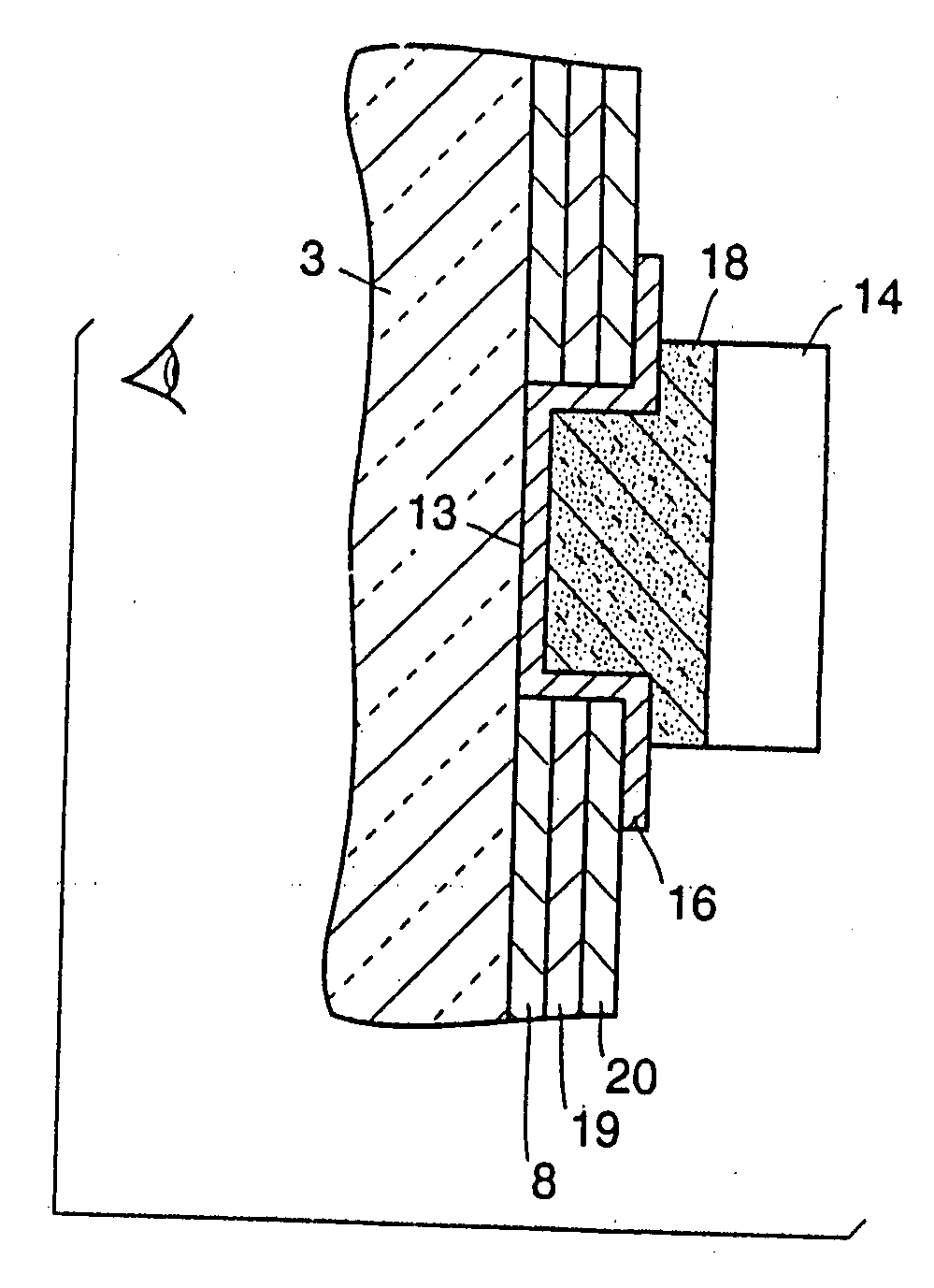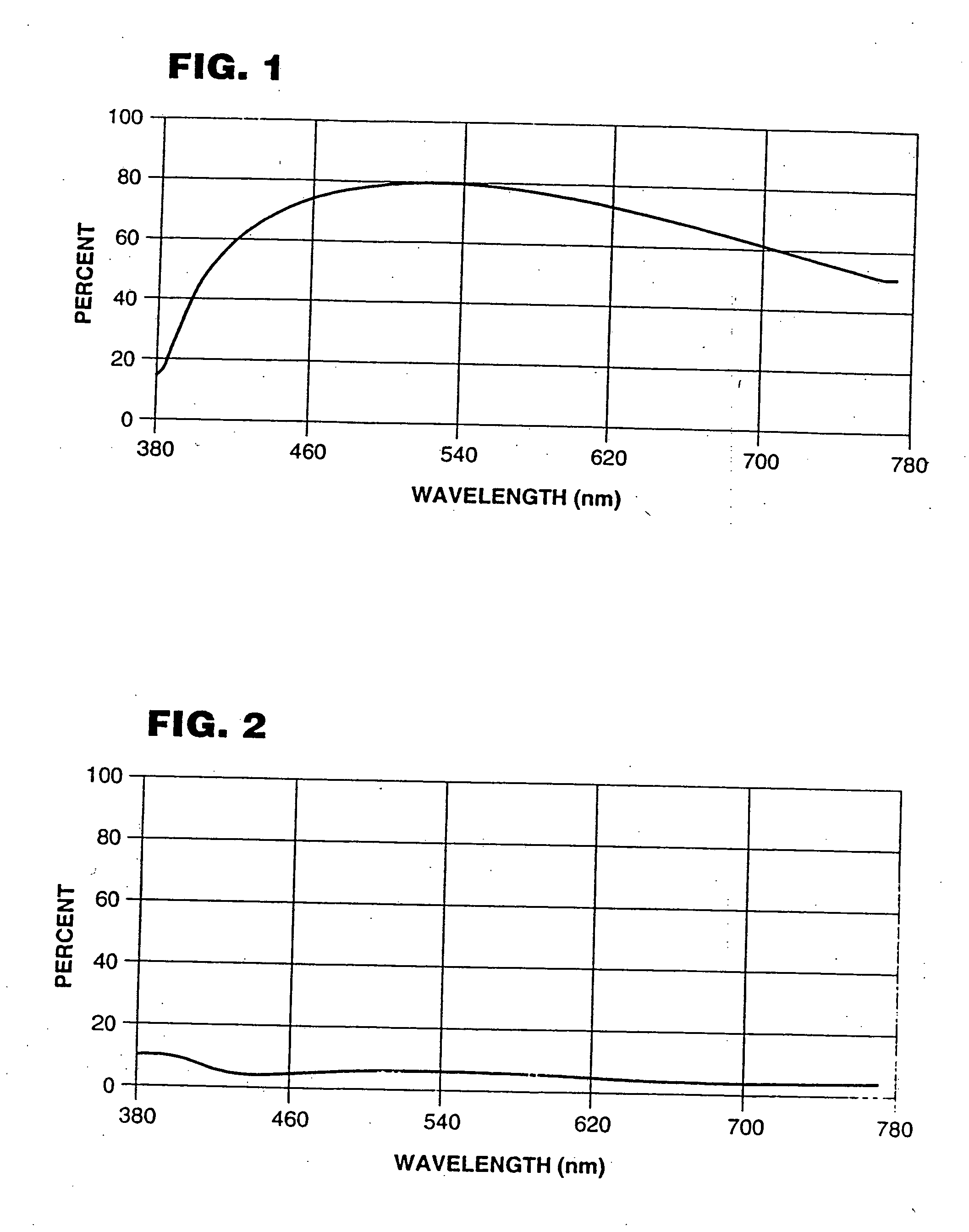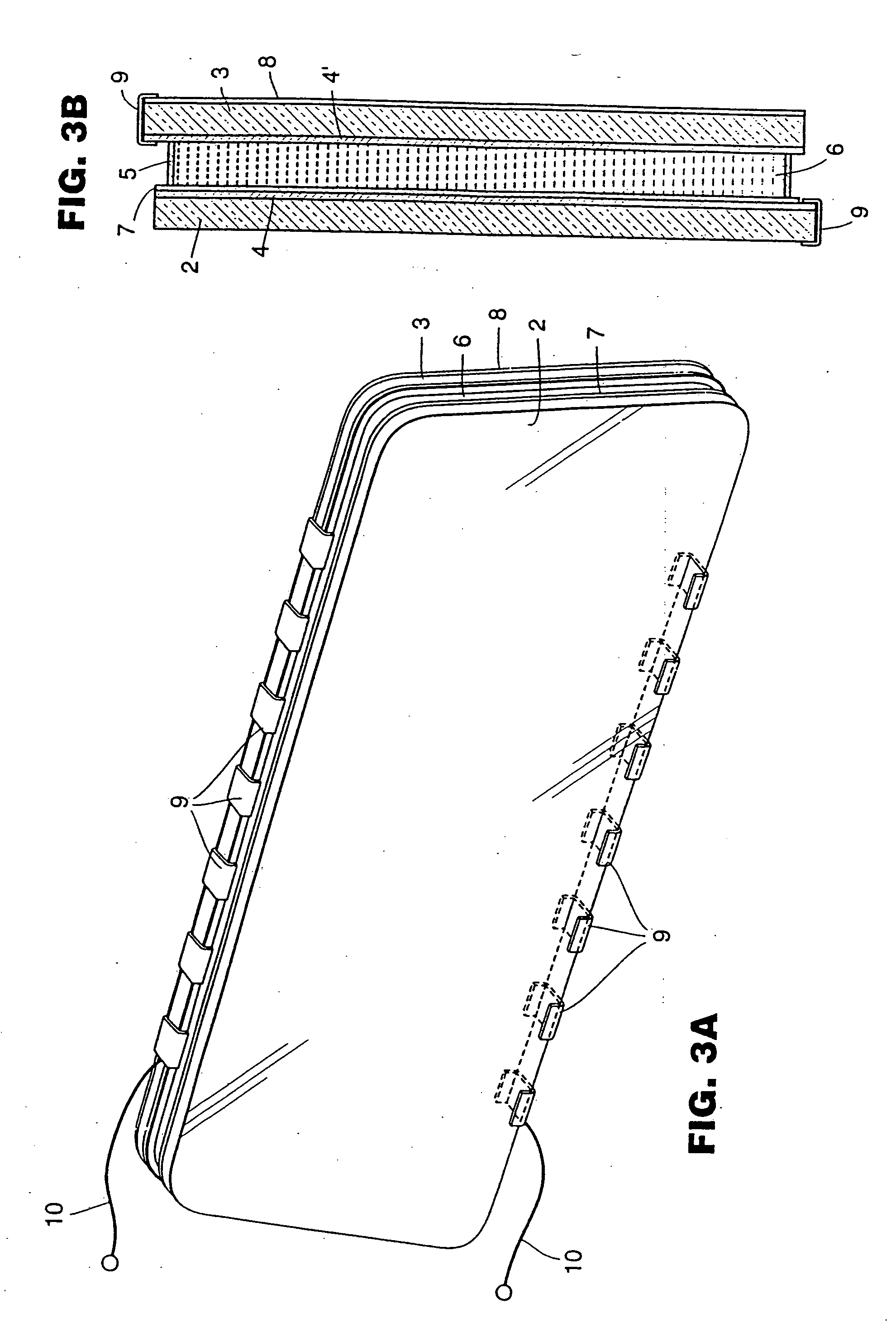Electrochromic mirrors and devices
a mirror and electrochromic technology, applied in non-linear optics, instruments, transportation and packaging, etc., can solve the problems of double imaging and reduce image separation, and achieve the effects of good optical performance in the mirror, higher resistance, and higher quality glass
- Summary
- Abstract
- Description
- Claims
- Application Information
AI Technical Summary
Benefits of technology
Problems solved by technology
Method used
Image
Examples
example 1
[0238] An electrochromic interior rearview automotive mirror cell having a shape commonly used for interior rearview mirrors was constructed from clear HW-ITO-coated glass as the first substrate (having a sheet resistance of about 12 ohms per square), with a tungsten oxide electrochromic solid film coated over its HW-ITO coating (which is coated onto the inward surface of the substrate). As the second substrate of the mirror cell, a HW-ITO-coated glass substrate (also having a sheet resistance of about 12 ohms per square) with the ITO coated onto its inward surface was used. A reflective element was formed by coating a layer of silver onto the rearmost (opposite, non-inward) surface of the second substrate of the mirror cell. The HW-ITO was coated onto the glass substrates at a thickness of about 1,500 Å; the tungsten oxide electrochromic solid film was coated over the HW-ITO coating of the first substrate at a thickness of about 5,000 Å; and the silver was coated onto the rearmost ...
example 2
[0250] In this example, we used the same electrolyte formulation and an electrochromic mirror constructed in the same manner as in Example 1, supra.
[0251] We introduced an applied potential of about 1.4 volts to the mirror and observed its center portion to change from a high reflectance of about 75.9% to a low reflectance of about 6.3%, which decreased from about 70% reflectance to about 20% reflectance in a response time of about 3.5 seconds.
[0252] We then subjected this mirror to an accelerated simulation of outdoor weathering conditions to investigate its resilience and stability to ultraviolet light. Specifically, we subjected the mirror to about 1300 KJ / m2 of ultraviolet exposure in an Atlas Ci35A Xenon Weather-o-meter (Atlas Electric Devices Company, Chicago, Ill.), equipped with a Xenon lamp emitting about 0.55 w / m2 intensity at about 340 nm. After accelerated outdoor weathering, we observed that the mirror continued to function suitably for use in a motor vehicle. We also...
example 3
[0254] The electrochromic mirror cell of this example was constructed from clear HW ITO-coated glass as the first substrate as in Example 1, supra. However, the second substrate was constructed of ordinary soda-lime glass. Using electron beam evaporation in a vacuum chamber, a layer of chromium was coated directly onto the inward surface of the second glass substrate as an adhesion promoter. Next, and without breaking vacuum, a thin film of silver was coated onto the layer of chromium as a reflective element, and thereafter (again without breaking vacuum) tungsten oxide was coated over the layer of silver as an electrochromic solid film. The layer of chromium was coated onto the second substrate at a thickness of about 1,000 Å; the thin film of silver was coated over the chromium at a thickness of about 1,000 Å; and the tungsten oxide was coated over the silver at a thickness of about 5,000 Å. The sheet resistance of the silver so undercoated with chromium was about 0.4 to 0.5 ohms ...
PUM
| Property | Measurement | Unit |
|---|---|---|
| area | aaaaa | aaaaa |
| visible light reflectance | aaaaa | aaaaa |
| wavelength | aaaaa | aaaaa |
Abstract
Description
Claims
Application Information
 Login to View More
Login to View More - R&D
- Intellectual Property
- Life Sciences
- Materials
- Tech Scout
- Unparalleled Data Quality
- Higher Quality Content
- 60% Fewer Hallucinations
Browse by: Latest US Patents, China's latest patents, Technical Efficacy Thesaurus, Application Domain, Technology Topic, Popular Technical Reports.
© 2025 PatSnap. All rights reserved.Legal|Privacy policy|Modern Slavery Act Transparency Statement|Sitemap|About US| Contact US: help@patsnap.com



